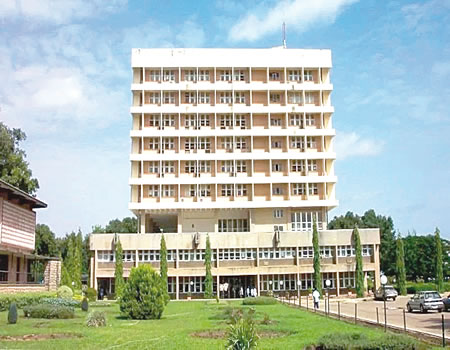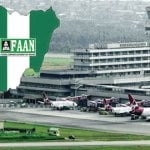FOR three full months, Nigeria’s federal universities have operated without the complementary role of the non-teaching staff. The three non-academic staff unions – Non-Academic Staff Union of Universities (NASU), Senior Staff Association of Nigerian Universities (SSANU), and National Association of Academic Technologists (NAAT) – acting under the umbrella of the Joint Action Committee (JAC), have been on a nationwide strike since December 4, 2017 over failure of the Federal Government to implement agreement reached with them.
SSANU president and chairman of JAC, Comrade Samson Ugwoke, told the Nigerian Tribune last week that there was no end in sight yet to the prolonged strike action, since the Federal Government is not ready to accede to the demands of the unions.
He said despite several meetings with the government, the latter had not given the unions anything tangible to necessitate the suspension of the strike.
According to him, some of the major issues that precipitated the lingering crisis include unpaid earned allowances, issue of University Staff Schools, fractional salary payments, corruption in the university system, and non-release of the White Paper on the visitation panels to universities.
Ugwoke said: “On the earned allowances, they (government) said they are mopping up money to pay us the arrears and we are waiting for that. On the issue of staff schools, the circular they brought out was even worse than the one we challenged in court; so, that cannot be implementation of the National Industrial Court judgment.
“We had expected them to respect the court judgment by way of recalling all those teachers and workers of Staff Schools that had been sacked or placed on half salaries or subsumed into the other sections of the universities.
“They should allow full fledged Staff Primary School to go on, recall the teachers and pay them arrears of their salaries for the months they were out of job –which is the full implementation of the court judgment. On the issue of shortfall in salaries, we are yet to record a full salary payment to our members. Members of our staff are still being paid fractional salaries.
“Also, the issue of corruption in the system; we spoke about reports of visitation panels set all over the universities across the country. Government spent huge sums of money in setting up these visitation panels. They have visited the universities to find out the problems of the universities and some fund misappropriation; but government has not come out with White Paper on that. They just swept the reports under the carpet and corruption goes on.
“What is the aim of the visitation panel? It is to make findings and make corrections. When you find out what is wrong in the system, the wrong thing is corrected; but no White Paper has come out. In other words, the same government that says it is fighting corruption is encouraging corruption.
“The worst of all is that some of our members are being victimised because they keyed into the whistle-blowing policy of the government to expose corruption in the system.”
Ugwoke alleged that in some universities, the Internally Generated Revenue (IGR) is misappropriated under the guise of provision of security.
“When they want to organise convocation or matriculation, they will say they are inviting police, DSS and all that; at the end of the day, millions will go out because nobody questions security vote. To me, that is corruption,” he said.
He noted that some of the universities were trying to break the strike by using police to coerce people to go to work because of personal interest, acknowledging, however, that they have been meeting with the government on how to resolve the impasse. He said for instance that there was supposed to be a meeting with the Minister of Labour and Employment on Monday, but the union could not attend because of the NLC at 40 celebrations.
The JAC chairman further said that the House Committee on Tertiary Education had also invited the unions for a meeting on Monday, March 6.
“There was going to be another meeting with House Committee on Labour on Tuesday and we have agreed to attend as well. But as all this goes on, our strike is on until these major issues I have highlighted are addressed.”
Sources at the Federal Ministry of Labour and Employment said the Minister of Labour, Dr Chris Ngige, has been working relentlessly to ensure that the striking university workers call off the strike.
It was confirmed that the minister had had several meetings with the JAC, and that government had already commenced the implementation of some aspects of the agreement.
The chairman of NASU, University of Lagos (UNILAG) branch, Comrade Kehinde Ajibade, accused the federal government of insensitivity to the plight of workers, while urging the Minister of Education, Malam Adamu Adamu to ensure that government fulfill its part of the agreement.
“Until the Federal Government honours Our Agreement, we will not resume. The federal government should do the needful; respect our agreement and meet our demands,” he said.
Nigerian Tribune recalls that the workers, under JAC, gave the Federal Government a two-week warning strike, which was suspended because the unions signed a memorandum of agreement with the federal government.
The memorandum stipulates payment of two years earned allowance, implementation of a ruling of Industrial Court that workers in the universities’ Staff Schools should be absorbed into the university; end in usurpation of duties of non-teaching staff by the teaching staff, among other things.
According to the workers, the terms of that agreement had not been met by the federal government until the total strike was embarked upon in December last year.
Some reports have also pointed to the fact that the crisis was aggravated on the grounds of argument by the unions that the Federal Government failed to honour a commitment to paying them the same earned allowances that were paid to academic staff late last year.
In their view, allocating N23 billion to the Academic Staff Union of Universities (ASUU) and a paltry N4.6 billion to the other unions was irrational and discriminatory.
Investigation has revealed that some universities have resorted to using police for the conduct of their examinations to prevent disruption by the striking members of the non-teaching staff of the universities. In some other institutions, examinations have been put on hold while skeletal teaching and other research activities go on.
Meanwhile, the conduct of the mock Unified Tertiary Matriculation Examination (UTME) on February 26, 2018 was disrupted by the non-teaching staff at the Obafemi Awolowo University, Ile-Ife. The examination was organised by the Joint Admissions and Matriculation Board (JAMB) to allow candidates test their skills and level of preparedness ahead of the 2018 UTME scheduled to hold between March 9 and 17.
The registrar and chief executive of JAMB, Professor Is-haq Oloyede, who was disturbed by the development, threatened to relocate the candidates for the University Computer Based Centre to another centre if necessary action was not taken to forestall such unpleasant action.
Stakeholders have accordingly called on the Federal Government to promptly accede to the demands of the striking workers for normalcy to return to the nation’s universities.
The lingering crisis has adversely affected the smooth operations of the universities, as such urgent steps must be taken to resolve the impasse in the interest of the Nigerian students who are at the receiving end.






